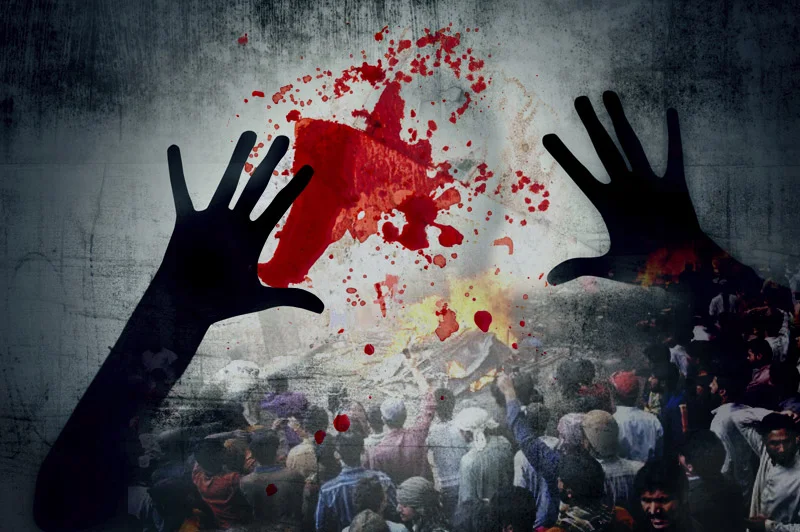Sectarianism is so deep-rooted in our society that even the state deems it ‘normal’ and does not react unless extremist manifestations of the phenomenon start turning ugly. The state’s typical response entails the ‘concealment and appeasement’ approach, which was evident from its dealing with the recent upsurge in sectarianism tensions in the country.
Being a pluralist society, Pakistan’s ethnocultural and ethnoreligious diversity has always been exploited internally and externally to weaponize the fault-lines. Even before 1947’s Subcontinent partition, sectarianism was a norm. However, the current sectarian resurgence with the rise of Tehreek-e-Taliban Pakistan (TTP) led by Noor Wali Mehsud is significant as it converges ethnocultural and ethnoreligious elements – Reorganization of the group on not just the Jihadi line but a Pashtun-centric one – characterizes the interest alignment between Tehreek-e-Taliban Pakistan (TTP) and Pashtun Tahafuz Movement (PTM); both groups are anti-security forces for Pashtun rights violation.
Moreover, during the protests by the banned Tehrik-e-Labbaik (TLP), the TTP issued a supportive statement.
This coalition of the ideologically non-aligned – TTP, a Deobandi Jihadi group, and TLP with Barelvi inclinations, is indicative of a compounded threat which can be viewed in terms of an evolving threat matrix in the West of Pakistan due to the alignment of the traditional national security paradigm with the emerging themes of regional connectivity and geo-economics in the Eurasian region.
Pakistan at the Realm of Religious Conflict
Historically, Pakistan’s ethnocultural and ethnoreligious diversity has been exploited by the adversarial elements to create internal rifts. Contextualization of the rise and fall of the sectarian groups; both ethnocultural and ethnoreligious, is indicative of their prevalence in response to certain internal and external factors.
From Mukti Bahini to Khan Abdul Ghaffar Khan’s Pashtun Nationalist Movement in Khyber Pakhtunkhwa, Baloch Liberation Army (BLA), Baloch Republican Army (BRA) and Baloch Liberation Front (BLF) movements in Balochistan, SindhuDesh Revolutionary Army (SRA), Sindhu Desh Liberation Army (SLA) and Jeay Sindh Qaumi Mahaz (JSQM) in Sindh, Seraikistan Movement, and Bahawalpur Province Movement in South Punjab, Gilgit-Baltistan Democratic Alliance (GBDA), Gilgit-Baltistan United Movement (GBUM) and Balawaristan National Front in Gilgit-Baltistan, the MQM; a democratic yet ethno-lingual political party and the formation and activation of PTM in 2014 and 2018 respectively – Ethno-nationalist groups having a separatist tendency have been common; indicative of certain political and economic grievances along with the ethnonational regional aspirations for greater autonomy.
As concerns the religious fault-line, Shia-Sunni clashes and sudden occurrences of violence with regard to Ahmadi, Hindu and Christian communities have been evident. Religious extremist groups with Sunni and Shi’ite backgrounds and transnational bases, such as Al-Qaeda and TTP can be viewed as destabilizing Pakistan by challenging the writ of the State. Besides, Jaish-e-Muhammad, (JeM), Sipah-e-Sahaba, and Lashkar e Jhangvi al Aalmi (ISIS-affiliated) from the Sunni background and Sipha-e-Muhammad, Zainabiyoun Brigade, etc. from Shi’ite background – These groups have been traced either for being foreign-funded or locally-funded by political elements for political manipulation.
Also See: India’s Dilemma in the Indo-Pacific Theater
Who is Trying to Destabilize Pakistan?
Hence, the threats are evident; simultaneously domestic, regional and international in character. Since their rise and fall is associated with the security paradigm of Pakistan, therefore, the pattern analysis suggests, the exploitation of such fault-lines is procedural which is as followed:
- Myth generation based on human security themes.
- Myth amplification through effective story-telling.
- The politicization of myth-based stories to seek international human rights intervention. In the recent context Karima Baloch, Baloch Missing Persons, Shia Missing Persons and humanitarian narrative projections by SAATH Forum Members can be considered for this purpose.
The reason that war has always been instrumental in bringing a change – From the British-Russo War to Saur Revolution followed by Soviet Invasion of Afghanistan – the Iranian Revolution and Iran-Iraq war – The post-Soviet withdrawal of Afghan society and the recent United States-led War on Terror in Afghanistan – The evolving nature of warfare – the shift from kinetic to non-kinetic has distressed the social fabric of Pakistan – locally, affecting the politico-economic and socio-political dimensions of the societal construct at macro and micro level – Regionally and internationally, suffering the impact of multi-polar rivalries in fueling sectarianism, and the prevalent sectarian fissures in the Islamic World.
Based on compounded interests, the threats also become compounded.
The convergence of interests between BLA and TTP over CPEC and the overt support of traditional rival India to secessionists in Pakistan – Then, the capture of Kalboshan Yadav from Balochistan and the asylum request by Baramdagh Bugti and Harbiyar Murri from India are demonstrative of the prevalent non-kinetic threats and hybrid warfare instigating the sub-nationalist propensities in Pakistan – the country strategically pivotal in the Eurasian context.
The article is originally published by GVS. The views expressed in this article are the author’s own and do not necessarily reflect the editorial policy of the South Asia Times







